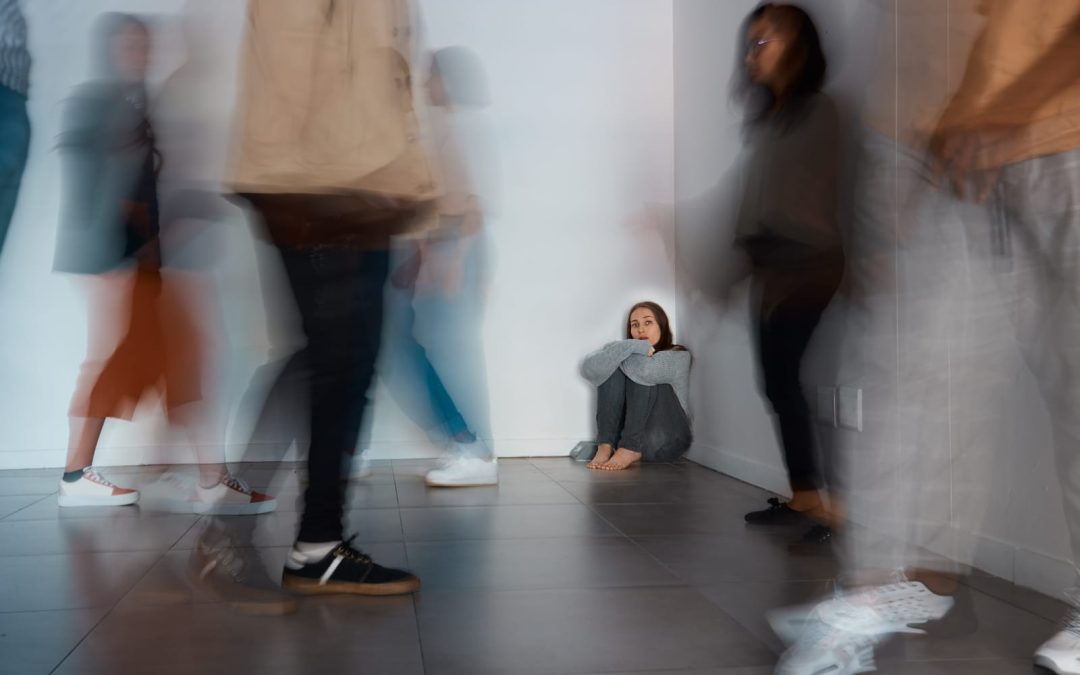Understanding Social Anxiety
Social anxiety is a normal response to the stress of a situation where there is increased or unexpected social demands. This can lead to situations which are overwhelming with concerns related to other people making judgements, saying or thinking unkind things, and being worried about rejection. A physiological reaction can then occur in the body called the ‘Fight, Flight or Freeze’ response.
The ‘Fight, Flight or Freeze’ response is the bodies way to prepare us to deal with stressful situations. This response includes increased heart rate, breathing and thoughts which can result in feeling even more overwhelmed.
Preparation strategies
There are some important steps you can take before even going out in public. These can help improve your experience while out in public. Some steps to consider are:
Plan Ahead – Planning ahead means choosing times where there might be less people or to quieter places.
Practice Relaxation Strategies – Practicing the relaxation strategies before going out can help lower your baseline levels of anxiety to give you more capacity when you are out and about.
Maintain Positive Outlook – Visualise a positive and calm experience in public space rather than planning for everything that might happen.
What to do while in public
Distractions – Use distractions such as a podcast or audiobook to focus your attention away from your feeling of anxiety. While music can also be a good option it can be easier for our mind to wonder when listening to music and so it may not be able to hold our attention.
Ground techniques – To reset our Fight, Flight, or Freeze response being present in the moment can help with reminding ourselves we are not currently in danger. Strategies like the 5,4,3,2,1 technique can assist. This strategy is to identify –
- 5 – Things we can see
- 4 – Things we could touch
- 3 – Things we can hear
- 2 – Things we can smell
- 1 – Thing we can taste
Breathing exercises – Similar to grounding techniques and using distractions, breathing exercises gives us something to focus on to help soothe and calm us. Slow, regular, deep breaths can help make us feel less anxious and more in-control. A suggested breathing exercise is –
- 4 – breath in quickly for 4 seconds
- 7 – hold for 7 seconds
- 8 – breath out slowly over 8 seconds
Buddy system – If being out on our own feels overwhelming asking someone to come with you can help. Ask a trusted friend or family member for support. Having someone else with you can serve as a distraction and something to focus on.
It is important to remember a strategy is only useful if it is useful to you. For example, if you find focusing on your breathing makes you feel more uncomfortable then use one of the other strategies.
Long-term strategies
Our psychologists are experienced in a range of therapies and can help you build on these strategies with sessions tailored to your particular needs. Common therapeutic approaches include:
- Cognitive Behavioural Therapy (CBT) – which aims to assist with reframing unhelpful thoughts and develop positive responses
- Acceptance and Commitment Therapy (ACT) – which encourages acceptance of emotions while moving towards implementation of meaningful actions
- Exposure therapy – which introduces stress in small manageable steps to work towards feeling capable of managing more stressful situations
- Mindfulness Based Strategies – mindfulness is associated with improved awareness of both thoughts and emotions and reduced psychological distress
We can help
Seeking help is the best way towards self-improvement. Work towards a more confident you, get in touch with us now.

